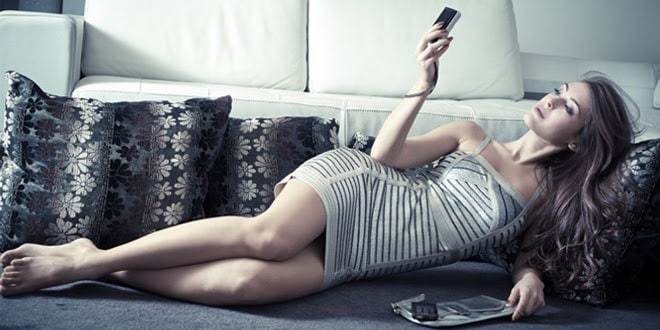This just in: celeb photos leaked!
That’s how it’s described now, when someone gains access to a private online account, acquires their most private information and uses it for their gain. Yeah, “leaked”. Like when someone “leaks” your credit card out of your pocket and “leaks” your money out of your bank account into their own.
When a government employee shares classified information with a journalist in order to highlight criminal activity, that’s a leak. When pictures you’ve taken of yourself naked are taken without consent and sold, that’s just good old fashioned theft.
We are of course referring specifically to Jennifer Lawrence and a handful of other celebrities who recently had their iCloud accounts hacked and their private photos stolen and shared.
That’s bad enough in its own right, but what’s perhaps more shocking is the response to it: it’s as though these celebrities don’t deserve to have private lives, and that it’s somehow surprising when it’s revealed that they are sexual, like the rest of us. These are insights into the private lives of real, actual human beings, taken without consent and distributed as though we deserve some ownership of them purely because the people featured in them choose to spend some of their professional lives in the public eye. We don’t deserve ownership of them, and just because these people have chosen to work in an arena visible to the public, that doesn’t automatically give us any proprietary rights over them.
It’s part of a disturbing and pervasive habit we have of commoditizing the sexuality of female ‘celebrities’. In fact, it’s not even restricted to celebrities. Female teachers, secretaries, real estate agents, police officers, weather presenters and many, many others are all penalized for having control of their sexuality. Somehow it’s acceptable to sexualize women, but unacceptable if we see ourselves as sexual. And woe betides any woman who wishes to keep her personal, professional and social lives separate.
In the words of Ann Hathaway, after a picture of a ‘wardrobe malfunction’ was taken, sold and published:

In a previous post celebrating World Sexual Health Awareness Day, we quoted the World Health Organization’s definition of sexual health:
Sexual health requires a positive approach to sexuality and sexual relationships, as well as the possibility of having pleasurable and safe sexual experiences, free of coercion, discrimination and violence.
This definition is important, because it’s easy to consider a sexy selfie to be something silly and frivolous, something that doesn’t have any impact. But that’s not true: it’s an absolutely valid expression of your sexual identity, and you should be free to create your own safely and securely, and share them as you see fit. You should not lose your job over something that has nothing at all to do with your job.
Unfortunately, that’s not currently how it works. The digital age is still young, and there are still gaps in security that lead to ‘leaks’. So we need to put some effort in ourselves to keep our privacy… private. Here are some tips on keeping your selfies to yourself….
1. Store Private Content Locally
Since the technology is still quite new, there are still flaws to be found in ‘the cloud’. Store anything you want to keep private directly onto your phone and don’t upload it to any online storage service. (If you’re using an iPhone, go to “Settings,” then “iCloud,” then “Storage & Backup” and stop the “Photo Stream” feature.) Check your phone’s security settings to make sure it’s not uploading files in the background.
2. Passwords
Make sure your phone is password protected, and then make sure that your ‘secret’ files are stored behind a separate and completely different password. There are tons of apps out there that will password protect your files. Change your passwords regularly.
3. Encrypt Your Files
If you’re really keen to protect your privacy, then an encryption program will stop your files from the possibility of being viewed even if a hacker has your password.
4. Don’t Be Naïve
It seems likely that the security breach that led to the theft of these celebrities’ photos was not a technological one: that means they were probably stolen by deception. You’re probably aware of phishing? It’s when a fake website is created which tries to trick you into entering private details, like password. As people become wiser to this practice, so the sites become more convincing, so don’t enter personal details unless you’re sure it’s legitimate.
5. Be Aware Of What You’re Giving Away
Don’t give away too much information. There’s no reason why an internet company would need your address, for example, or your first pet’s name. Unless you trust the site, protect this kind of personal information, because it can be used to figure out passwords. If you have to give details, tweak them. Change your name slightly, or use a slightly different spelling of your address. Use fake answers on security questions
It’s a shame that we have to go these lengths, but that’s unfortunately our lot for now, until the technology –and the attitudes that go with it – begin to change.
Perhaps Lena Dunham said it best:
The way in which you share your body must be a CHOICE. Support these women and do not look at these pictures,remember, when you look at these pictures you are violating these women again and again. It’s not okay.
So go forth, take selfies, feel sexy, and stay safe.

